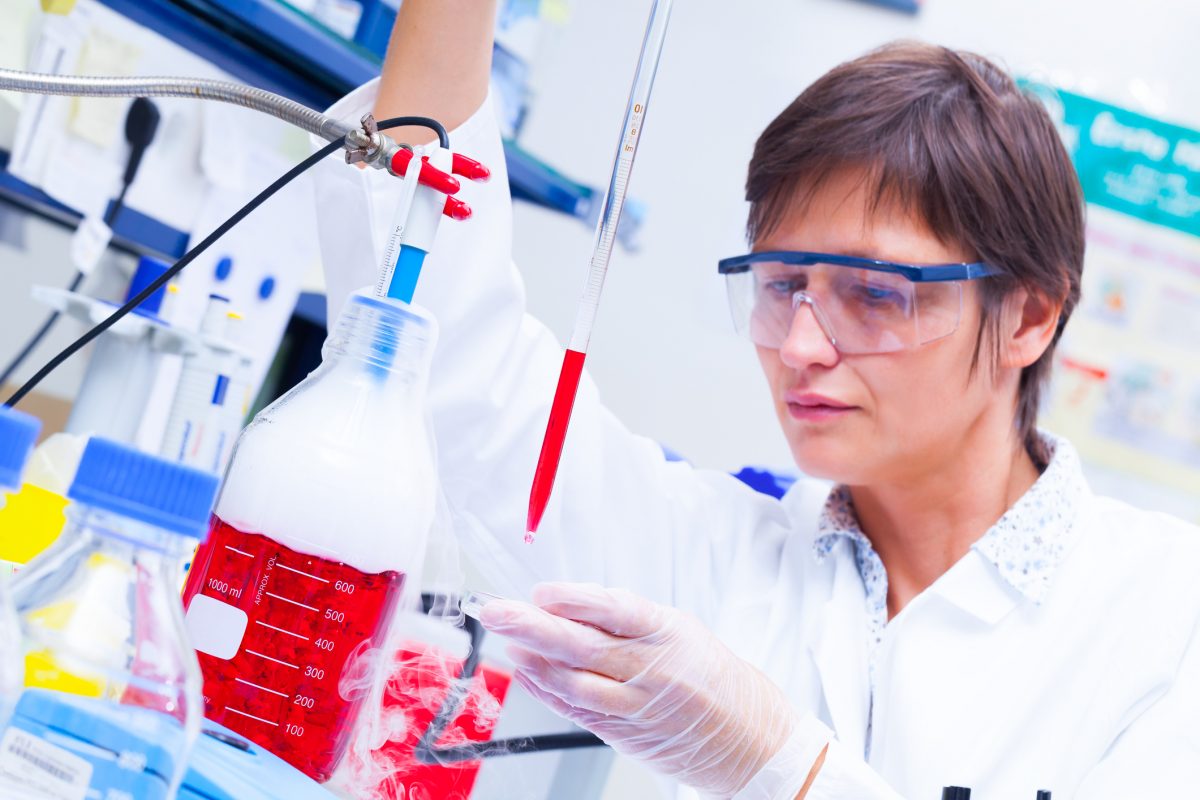Regenerative medicine and cell therapy can revolutionise healthcare. Kath Mackay and Michael Sullivan, Lead Technologists in Regenerative Medicine at the Technology Strategy Board outline the importance of the field.
Innovation is essential in developing the next generation of medical treatments. As the global population grows and ages, healthcare providers will need to contend with an increasing burden of disease, but the way healthcare is currently delivered is becoming unsustainable.
Already in the UK it is estimated that 30% of the population suffers from a chronic disease where there is no cure or where treatment is inadequate, and chronic disease management is thought to account for 70-75% of all UK healthcare costs.
The Technology Strategy Board is the UK’s innovation agency. We guide, mentor and fund high growth companies, accelerating economic growth and helping our companies to bring new ideas and technologies to market faster. We focus innovation activity on areas where the UK has strong capability and where we think it can make the biggest difference – one of those areas is regenerative medicine.
Regenerative medicine is a broad definition for innovative medical therapies that aim to replace or regenerate human cells, tissues or organs in order to restore or establish normal function. Regenerative medicine brings together multiple different technologies, including cell therapy which uses live cells to replace damaged tissue or to treat disease. Together, regenerative medicine and cell therapy offer the potential to transform how we treat conditions that lie beyond the reach of classic pharmaceutical approaches.
The UK is at the forefront of developments in this field – underpinned by the history of the safe and successful clinical use of bone marrow transplants to regenerate the blood and immune systems of patients with, say, leukaemia or lymphoma. There have been significant medical advances in skin regeneration for burns patients and the treatment of diabetic foot ulcers. Now, clinical trials are underway testing a second generation of innovative treatments for conditions such as diabetes, liver disease, neurodegenerative disorders and spinal cord injuries.
A striking example of the application of regenerative medicine was the successful replacement of a portion of a patient’s damaged trachea with a tissue-engineered transplant constructed in the lab by growing stem cells and epithelial cells from the patient, on a collagen scaffold prepared from a donor trachea. Regenerative medicine and cell therapy can revolutionise the way we deliver healthcare and there is clear potential for these treatments to combat rising healthcare costs. The burgeoning UK regenerative medicine industry is in a strong international position, both industrially and scientifically, to generate significant revenues from the increasing demands of our growing population.
The Technology Strategy Board is leading in the support for companies working in this emerging field. However, developing these novel products and bringing them to market is particularly challenging; for example, the current clinical and regulatory framework is designed for more conventional therapies, and there are technical challenges associated with designing early stage clinical development programmes and large scale manufacturing methods to work with live cells.
In 2009, we established our Regenerative Medicine and Cell Therapy Programme to enable the best businesses to flourish, providing funding and support for them to address their sector specific challenges. So far, with a £3m contribution from our partners in the research councils and Scottish government, we have committed almost £28m of funding which has allowed UK companies and their collaborators to undertake more than 80 research projects that otherwise would not have been funded.
Our funding has enabled treatments to go into clinical trials for the very first time, in areas such as eye disease, wound healing, cartilage repair and immunotherapy. Several companies that we have supported have leveraged private financial investment as a direct consequence of our funding. We are building upon our successes with the recent announcement of a new competition, Advancing Regenerative Medicines and Cell Therapies which will offer up to an additional £8m of funding, including a contribution from the Welsh government. This will advance the industry by further addressing the clinical development and manufacturing challenges related to preparing these novel treatments for use.
It became clear to us that companies we were working with faced many collective challenges that could be better served by the development of infrastructure and expertise which could be shared amongst the emerging industry in the UK. Working with the community we were able to design a Catapult Centre that would address the needs of this emerging industry sector, supporting its growth and establishing the UK as a global centre. The Cell Therapy Catapult 1 was established in 2012 and is based at Guy’s Hospital in London, a pioneering healthcare centre of excellence. The Catapult provides access to technical, regulatory, clinical and financial expertise and infrastructure, enhancing the UK’s key strengths in this area, and enabling the UK to be a global leader in the development and rapid commercial exploitation of cell therapies.
The government’s budget of March 2014 unveiled exciting plans to establish the UK’s first facility dedicated to addressing industrial scale manufacture of cell therapies for Phase 3 clinical trials. Managed by the Cell Therapy Catapult, £55m will be spent to establish this new centre which will draw upon the team’s unparalleled expertise and work with existing infrastructure to meet the demands of our expanding industry, bringing trade and investment benefits for the UK as a whole.
As we further support the UK cell regenerative medicine industry to grow and mature, success will see therapies available on the NHS. Work is now underway to ensure that healthcare providers are ‘delivery ready’. The Regenerative Medicine Expert Group (RMEG) was established to develop an NHS regenerative medicine strategy, so that the NHS is fully prepared to deliver these innovative treatments, and also assess the effect of regulation on the development of Regenerative Medicines in the UK. The group will report its strategy and action plan to the Secretary of State for Health by December 2014.
Kath Mackay
Lead Technologist – Regenerative Medicine
Michael Sullivan
Lead Technologist – Regenerative Medicine
Technology Strategy Board











